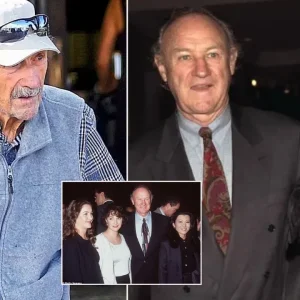Floyd Mayweather Jr., widely regarded as one of the greatest defensive boxers of all time, has been the subject of both praise and criticism throughout his illustrious career. While his unblemished record of 50-0 and unmatched ability to read opponents in the ring have solidified his place in boxing history, not everyone is convinced of the authenticity of his greatness. Julio Cesar Chavez, the legendary Mexican champion, recently reignited the debate with sharp remarks about Mayweather’s career choices and his standing among the legends of past eras.

Chavez’s Perspective on Mayweather’s Legacy
Julio Cesar Chavez, a revered figure in boxing, shared his candid thoughts on Mayweather, acknowledging his defensive brilliance but questioning the depth of his challenges in the ring. Chavez stated:
“Boxing-wise he’s truthfully a very good boxer, defensively he’s very good. But he’s a fighter I don’t like, to be honest. I think if he would’ve faced the fighters from the 80s and 90s, he wouldn’t be able to do anything. He was in an era with a few fighters he got on the way out. He’s chosen his opponents.”
Chavez’s critique points to a recurring conversation in boxing circles: was Mayweather’s undefeated record a product of careful matchmaking, or was it a testament to his unparalleled skills?
Mayweather’s Dominance: Skill or Strategy?
Mayweather’s career spanned decades, marked by high-profile victories over renowned fighters like Oscar De La Hoya, Manny Pacquiao, and Canelo Alvarez. However, critics argue that many of these opponents were either past their prime or too inexperienced when they faced “Money” Mayweather.
For example, Manny Pacquiao, considered by many to be Mayweather’s most formidable rival, faced him in 2015, years after their initial rivalry peaked. Chavez’s comment about Mayweather “choosing his opponents” reflects this sentiment, implying that Mayweather prioritized preserving his perfect record over taking on riskier fights.
A Comparison to the Golden Eras of Boxing
Chavez’s remarks also draw attention to the fierce competition of the 1980s and 1990s, a period widely regarded as one of the richest in boxing history. Legends such as Sugar Ray Leonard, Thomas Hearns, Roberto Durán, and Marvin Hagler defined the era with their fearless willingness to fight anyone, often facing each other multiple times in career-defining bouts.
Chavez suggests that if Mayweather had been active during that era, his defensive prowess might not have been enough to overcome the relentless pressure and diverse skill sets of those fighters.
However, it’s important to note that every boxer operates within the circumstances of their time. Mayweather’s era was different, with fewer all-time greats active simultaneously. While some may see this as a limitation of his legacy, others argue that it’s not fair to penalize a fighter for the era in which they competed.
Mayweather’s Approach to Boxing: A Calculated Career
Mayweather’s approach to his career was undeniably calculated. He carefully chose opponents, often fighting them when it was most advantageous for him. While some criticize this as a sign of weakness, others see it as a testament to his intelligence both inside and outside the ring.
Beyond his defensive brilliance, Mayweather revolutionized the business of boxing. He turned himself into a brand, negotiating record-breaking pay-per-view deals and ensuring financial security for life. His fight against Conor McGregor, though dismissed by purists as a spectacle, earned him one of the largest paydays in sports history.
The Legacy Debate: A Matter of Perspective
Boxing fans and analysts often debate the criteria that define greatness. For some, it’s about the ability to defeat the best of one’s era; for others, it’s the willingness to take on all challenges, regardless of the risk.
Julio Cesar Chavez represents a school of thought that values the latter. His own career was characterized by his relentless fighting style and willingness to face tough opponents, earning him legendary status among fans. In contrast, Mayweather’s approach was more strategic, prioritizing longevity and financial gain.
Both approaches have merit, but they also highlight the differences in what fans and historians value in a fighter’s legacy.
Conclusion: Mayweather’s Place in Boxing History
Floyd Mayweather Jr. remains one of the most polarizing figures in boxing. While his skills and record are undeniable, his career choices leave room for debate. Julio Cesar Chavez’s critique adds an important voice to this conversation, reminding fans of the importance of context when assessing greatness.
Ultimately, whether Mayweather could have succeeded in the golden eras of boxing remains a hypothetical question. What is certain, however, is that his name will continue to inspire debates for generations, solidifying his role as one of the most talked-about figures in the sport’s history.





